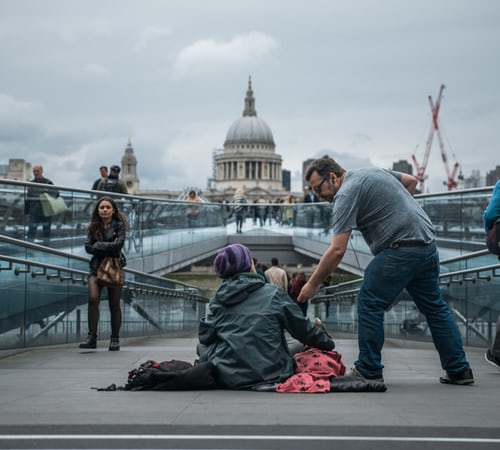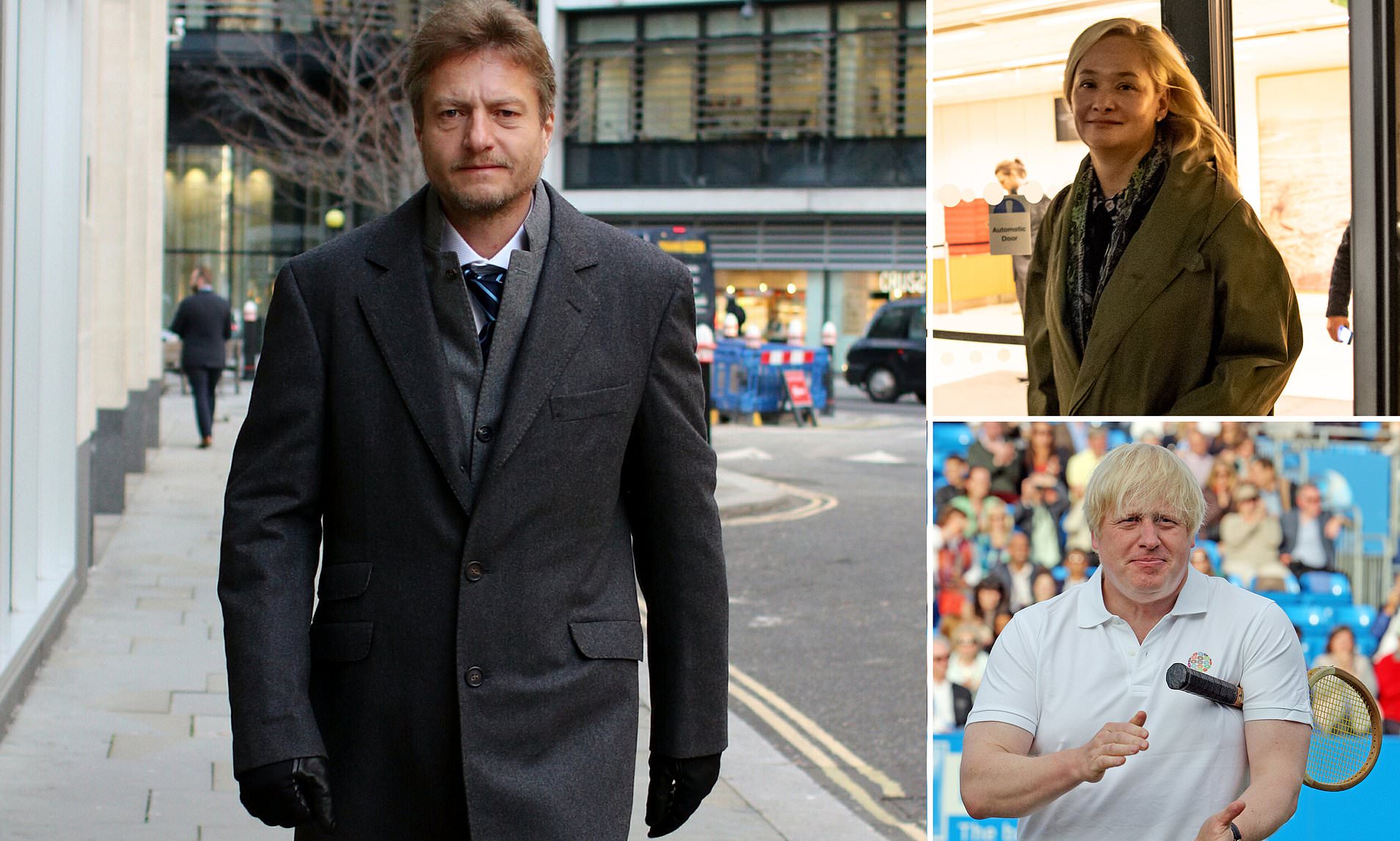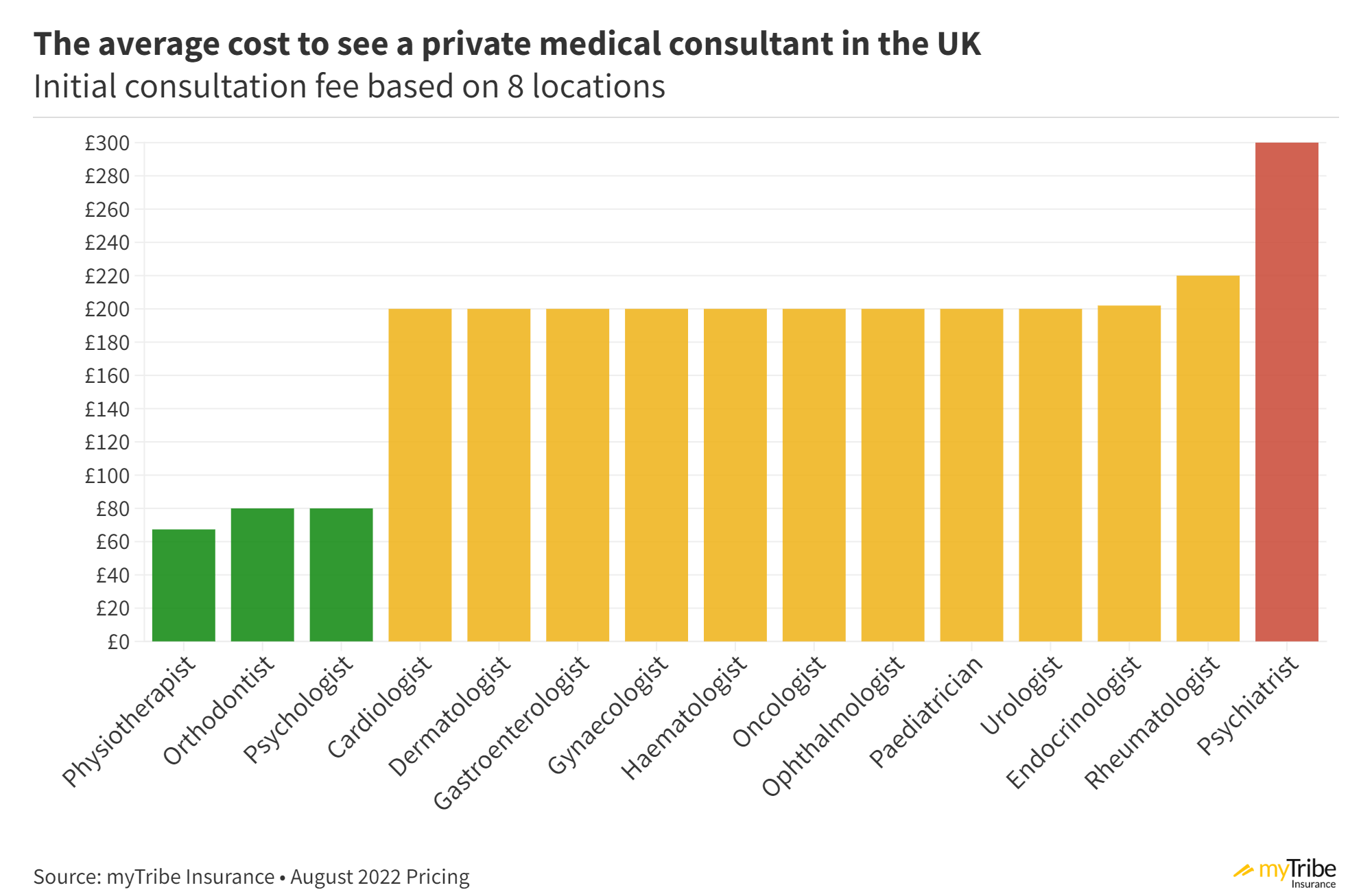Thousands of people gravitate to London for all kinds of reasons and then find themselves homeless.
Maybe they’re victims of the gig economy, or they’ve experienced domestic abuse, have mental health problems, or are addicted to drugs or alcohol, but suddenly they have nowhere to live.
More than 10,000 people a year sleep rough on the streets of the English capital, some of them permanently.
While steps are being taken to solve this homelessness crisis, there’s a way to go.
At the start of the pandemic, the Government asked local authorities to find homes for all rough sleepers in England as part of the Everyone In campaign, prompting a dip in the figures. However, statistics can be misleading because rough sleeping is only one form of homelessness and there are other kinds that go under the radar.
People living in temporary accommodation such, as B&Bs and hostels, are homeless.
So too are the sofa surfers who spend a few nights sleeping at a different friend’s house before moving on.
There are homeless people in refuges and night shelters.
We might not see them lying down in doorways, or begging for money, but if they don’t have a roof over their head that they can call their own then they are homeless.
A report by Shelter in 2019 estimated that one in 52 people, or more than 170,068, in London were homeless, and as the COVID-19 pandemic continues to ravage livelihoods, that number will inevitably rise.
And while urgent help is available for those living rough, The Charity Crisis, which has produced a plan to end homelessness, says that just isn’t enough.
“While emergency accommodation is essential in a crisis and keeps many people off the streets, this must be a short-term response and, if possible, is best avoided,” it said.
“The plan is based on the principle that everyone can and should be housed; nobody should have to qualify for it or prove they are ‘housing-ready’.
“This housing-led principle requires that person-specific support must be provided to help people access housing and stay in it.
“The label ‘the homeless’ is unhelpful and detrimental too.
“As soon as possible, people should be helped to regain a normal existence in mainstream housing.”
The capital is working towards ending homelessness in a more sustainable way, and already has some amazing projects that offer life-changing support, ensuring people can get back on track with their lives.
Streets of London is an organisation that raises money to support a variety of charities that are making a difference to those who find themselves homeless.
During the pandemic, charities have been helping rough sleepers find accommodation and support and advising people about mental health, addiction and employability training through regular contact by phone, WhatsApp and Zoom.
Outreach teams supply food and warm clothing, medical attention, clothing, prescriptions and more.
Homelessness is often a symptom of something else, such as mental illness, abuse, or family breakdown.
Even when it’s the result of someone losing their livelihood – and this has become more prevalent during the pandemic with the closure of businesses – a few nights on the street can send people into a downward spiral.
They may even experiment with drugs and alcohol to fit in with the culture of other people sleeping rough.
They’ll certainly be traumatised by the experience, and all this means they need a lot of support when they are finally found a home.
London’s Mayor is also taking immediate and long term action through the Life off The Streets programme.
Immediate support involves:
- Increasing the number of outreach workers during the winter months
- Opening extra emergency shelters when temperatures plunge to below zero
- Launching a mobile homelessness hub for areas what see a rise in rough sleeping
- Funding a shelter for LGBTQI+ people in crisis to help prevent them ending up on the streets
- Working with Veterans Aid to tackle homelessness amongst ex forces
The Lord Mayor’s long-term strategy includes:
- Working with London’s councils on the In for Good programme, to ensure that no one in a severe weather emergency shelter leaves without an offer away from the streets
- Providing 3,700 low-rent homes in London for former rough sleepers, supported by the Mayor’s Tenancy Sustainment Teams, to help people live independently
- Using social impact bonds to fund service providers, helping long-term rough sleepers into accommodation
- Calling on government to invest more in tackling the root causes of homelessness, such as welfare cuts and the lack of affordable housing
One new approach to homelessness is through acquiring modular homes.
Southwark Council has now given the go-ahead for 33 new single-occupancy homes for young people in Peckham and the first of these are being built by Centrepoint, the UK’s leading youth homelessness charity.
This innovative development is part of the charity’s Independent Living Programme, which aims to provide 300 young people a home and entry-level or apprenticeship roles that lead to full-time employment.
The scheme provides affordable housing aimed at young people who are ready to move on but basically can’t afford the accommodation to be able to do so.
Centrepoint will build the individual modular homes, transforming an old block of eight flats to create a cost-effective solution to genuinely affordable living.
Not only will the project be less expensive to complete than a traditional build, but young people will only be charged approximately one-third of their salary as rent.
The Peckham scheme is just the start, with Centrepoint also talking to councils in Barnet, Hounslow, Waltham Forest, as well as in Manchester, with the aim of rolling it out to other areas.
It is also looking for partners to help develop the Independent Living Programme, which seeks to tackle the shortage of high-quality affordable accommodation and free up hostel beds that Centrepoint currently currently provides for those in dire need, giving young people a real future defined by independence.







